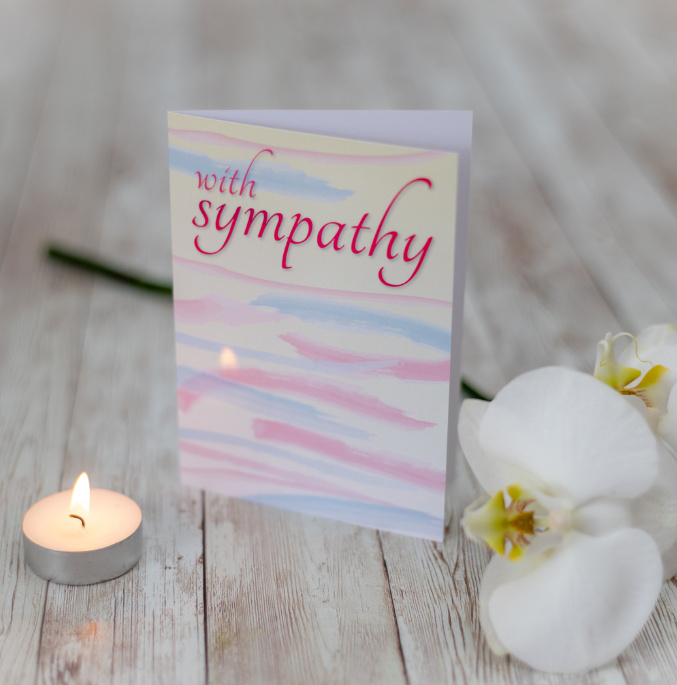When a loved one, friend or colleague experiences a loss, finding the right words to say can go a long way. In this guide, we’ll help you come up with supportive messages that can be applied to any situation.
Table of Contents
ToggleWhy Sympathy Cards Matter
Sympathy cards are an important part of the grieving and healing process.
They:
- Acknowledge the loss of that special person while showing the bereaving person that they’re not alone.
- Offer emotional support by letting someone know you are there for them while expressing empathy and understanding.
- Provide a keepsake that families may turn to during difficult times.
At Scotmid Funerals, we’ve seen first-hand how a simple heartfelt sympathy card can mean the world to someone grieving.
Note: If you’re planning or attending a funeral, you can visit our funeral services page with lots of helpful content and pages.
Preparing to Write Your Condolences
Before you begin, take a moment to quiet your mind. Jot down or think of some fond memories and reflections that you associate with the deceased or bereaved.
Here are some things to consider:
- Reflect on the relationship: Was the recipient a close friend, a colleague or someone else? The formality of the sympathy card may differ depending on your relationship with that person and how well you know them.
- Cultural Context: In the UK and beyond, different communities have varying funeral traditions. If you’re unsure, its best to write a gentle and universal message to avoid causing any offence.
- Gather personal memories (If Appropriate): A shared memory or anecdote can make your sympathy message more comforting and personal. This will depend on how well you know the person and your relationship with them.
What To Write In A Sympathy Card?
If you don’t want to write anything personal and want to play it safe, you can try one of these short but heartfelt messages that are perfect for most sympathy cards.
For a Close Friend
- “I’m so sorry for your loss. [Loved one’s name] meant so much to me, and I’m here for whatever you need.”
- “Thinking of you during this difficult time. I cherish every memory we shared together.”
For a Colleague or Acquaintance
- “My condolences to you and your family. Wishing you comfort and peace.”
- “I’m holding you in my thoughts as you navigate this loss.”
Tip: If you worked with the deceased, briefly share a positive work memory. For example, “Your mother always put a smile on everyone’s face with her witty humour and kindness. May she rest in peace.”
For a Family Member
- “Your [relationship: mother/father/etc.] was a wonderful person. I’m grateful to have known them, and I’ll always remember their kindness.”
- “May the love of friends and family carry you through this period.”
Religious vs Non-Religious Messages
Depending on the bereaved family’s beliefs, you may choose to reference their faith in your sympathy card. Only do this if you know their faith as it may offend some people otherwise.
Religious
- “I’m praying for you and your family and trust that God’s peace will be with you.”
- “May the Lord comfort you as you celebrate a life well-lived.”
Non-Religious:
- “Sending you warm thoughts and wishing you peace as you remember your loved one.”
- “I hope you find moments of comfort in shared memories and the support of friends.”
What to Avoid Saying
There are times when condolence messages can offend people and do more harm than good. Although people mean well, there are certain things to avoid saying in a sympathy card.
“They’re in a better place”: While this may be comforting to some, not everyone believes this and would rather that person still beside them.
“I know how you feel”: Grief is a personal journey for everyone. It’s usually better to acknowledge that you can’t fully understand their loss than to say you also experienced it.
Your role is to offer support, not solutions. Focus on an empathetic message rather than offering your advice. You may mean well, but in this time they may not want to hear it.
If You Need Further Support
At Scotmid Funerals, we believe in helping families through every step of the journey and farewell process. Whether you need assistance arranging a funeral, knowing whether to do cremation or burial – or seeking grief support, we’re here for you.
Visit our Funeral help and support page to find out more information.








